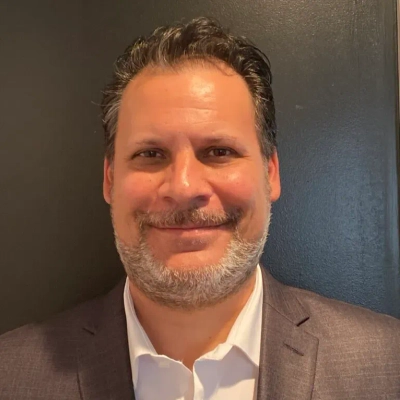20 Lessons on Customer Acquisition for Startups
Customer acquisition remains one of the most challenging aspects for startups seeking sustainable growth, as this article presents 20 actionable lessons backed by industry experts. These strategic approaches focus on structured methodologies, time management techniques, and prioritization frameworks that directly impact business development. From creating momentum with focused activities to designing experiments that test key assumptions, these practical insights offer startups a roadmap to more effective customer acquisition without sacrificing operational efficiency.
Create a Structured Approach with Key Metrics
Based on my experience, I recommend creating a structured approach where you outline your key tasks and set specific goals for each area of your business. Tracking your most important metrics, like your sales pipeline, helps ensure critical activities aren't overlooked while still maintaining necessary flexibility in your schedule. This structured prioritization system allows you to address what truly matters for your business growth rather than constantly reacting to whatever seems urgent in the moment.

Schedule and Defend Focused Time Blocks
I strongly recommend implementing a time blocking system where you schedule all your important tasks directly into your calendar rather than relying on to-do lists. The key is to defend these time blocks vigorously by closing communication apps and removing distractions like your phone from your workspace. For maximum effectiveness, try to schedule at least four hours of focused work daily and be intentional about labeling each time block with its specific purpose.
Start with a Must-Move List Not To-Do
If you're a startup founder drowning in tasks, here's the hard truth: not everything urgent is important.
One piece of advice I swear by: start your day with a "must-move" list, not a to-do list. A to-do list is a trap that grows endlessly and dilutes your focus. A must-move list forces you to identify the 2-3 tasks that actually move the needle. These are the things that, if done today, will create momentum, whether that's closing a deal, refining your pitch, or solving a customer pain point.
To prioritize effectively, I use a simple filter: Impact x Urgency x Energy.
- Impact: Will this task drive growth or clarity?
- Urgency: Does it need to happen now, or can it wait?
- Energy: Do I have the mental bandwidth to do this well today?
If a task scores low on all three, it's noise. Delegate it, defer it, or delete it.
Also, protect your mornings. That's when your brain is freshest. Block 90 minutes for deep work before you open Slack, email, or socials. You'll be shocked at how much clarity and progress you gain.
Startup life is chaotic. But clarity isn't a luxury; it's a discipline. Build it into your day, and productivity will follow.

Practice Ruthless Prioritization of Core Business
Based on my own journey as a founder, I found that ruthless prioritization is the single most important skill you can develop. The reality is that you'll need to gracefully decline opportunities that don't align with your core business priorities, even when they seem attractive. When you find yourself tempted to overcommit, take a moment to reconnect with your deeper motivations and the specific goals that matter most to your company right now.

Match Strategic Work to Peak Energy Hours
I recommend startup founders begin by understanding their own unique energy patterns and matching their most important strategic work to their peak focus hours. In my experience, I discovered my mornings are best for deep strategic thinking, while afternoons after physical activity are ideal for client engagement and team collaboration. By intentionally structuring your calendar around these personal insights rather than random meeting requests, you'll accomplish significantly more high-value work. This approach requires regular reflection on what truly moves the needle for your business and the discipline to protect your calendar accordingly.

Dedicate Specific Days to Specific Activities
Block specific days for specific activities—don't mix sales calls with installation oversight with administrative work. We have "customer days" and "operations days," which eliminated the constant context-switching that killed productivity. When you're meeting with homeowners about their flooring dreams, you can't be simultaneously worrying about payroll or vendor shipments. Your brain works better in focused modes, and customers feel the difference when you're fully present.

Treat Tasks Like Bets with Varying Returns
The biggest shift for me in managing time wasn't about productivity hacks—it was about treating tasks like bets instead of chores. Most founders drown because they give every task equal emotional weight. Answering emails feels just as "urgent" as mapping out a new revenue stream. But the truth is, not all hours have the same return.
When I look at my week, I ask myself: If I only won one bet this week, which one would change the trajectory of the business the most? That task goes first. Always. Even if it's uncomfortable, even if it doesn't feel "urgent" yet. Everything else becomes optional until that's done.
For example, early on I spent entire days optimizing small processes—customer onboarding flow, tightening up metrics dashboards—because they were tangible and satisfying. Meanwhile, the bigger bet, building a major distribution partnership, kept slipping. Once I flipped the frame to "bets, not tasks," I prioritized the partnership first. That single deal ended up dwarfing all the tiny optimizations combined.
The takeaway: time management isn't about squeezing more tasks into your day. It's about weighting your time by impact. Pick the bet that moves the needle, place it first, and let the small stuff fight for whatever scraps of time are left.

Focus on Three Things That Create Momentum
The best advice I can give is this: stop trying to do everything—decide what actually moves the business forward.
When I was building Zors, I fell into the same trap every founder does: mistaking activity for progress. My to-do list was endless—emails, product tweaks, marketing drafts—and it all felt urgent. But once I started ranking tasks by impact, not urgency, everything changed.
Here's the framework I use:
Identify your "three things." Each week, I pick the three priorities that will create the most momentum—whether that's a new feature launch, a key sales conversation, or a partnership. If it doesn't align with one of those three, it gets scheduled later or delegated.
Protect deep work. I block time for uninterrupted focus—no calls, no emails, no Slack. Productivity isn't about doing more; it's about creating space to think clearly.
Delegate outcomes, not tasks. Empowering people to own results (not just steps) frees you to focus on strategy instead of micromanaging.
Time management isn't about efficiency—it's about intentionality. The goal isn't to be busy; it's to make sure every hour is pointed toward growth.

Organize Week into Distinct Time Segments
Your first step should involve creating strict time boundaries for your schedule. The founder role requires me to organize my week into three distinct time segments which include engineering deep work and team interactions and decision-making responsibilities. The absence of structure makes every task seem like an immediate priority.
The first priority goes to tasks which prevent team members from making progress. The second priority should focus on tasks that need extended periods of time for completion including hiring processes and infrastructure modifications. The implementation of Azure DevOps and ClickUp tools has proven successful for identifying tasks which need delegation or postponement.

Establish Protected Routines for Mental Clarity
I've found that establishing protected routines is crucial for effective time management as a founder. In my startup's early days, I designated non-negotiable time blocks for reading, fitness, and family, which helped maintain my energy while facing the unpredictable challenges of building a business. These protected periods served as anchors in an otherwise chaotic schedule and allowed me to show up fully present for the demanding work of leadership. Creating these boundaries isn't just about balance—it directly impacts your decision-making quality and ability to prioritize effectively when you return to work.

Map Your Capacity Before Committing Tasks
My advice is to treat your time like the most valuable property in your portfolio--don't let just anyone occupy it. When I was balancing coaching football, flipping homes, and client work, I started each week by visually mapping out my non-negotiable commitments on a whiteboard. That gave me a clear picture of my real capacity, so I could strategically slot in only the highest-impact tasks, instead of scrambling to squeeze in everything. It's about protecting your time from both distractions and your own tendency to overcommit.
Secure the Perimeter Tasks First
Think about your business like a job site. The problem with struggling founders is they're trying to install the roof and pour the foundation at the same time. You can't do both. My advice is simple: You must secure the perimeter first.
In the roofing trade, securing the perimeter means getting the safety harnesses on, setting up the dump trailer, and getting the materials staged before the first shingle is touched. That's your high-priority, non-negotiable task. For a startup founder, that means identifying the one or two tasks each day that, if left undone, will shut down the job or lose you money. Everything else is secondary.
A few years back, I had a huge job that was behind schedule. I was running around trying to answer calls, meet suppliers, and get on the roof all in the same hour. I realized I was just creating chaos. I stopped everything and made a rule: no phone calls until the material list for the next day was finalized and the crew assignments were made. That took 90 minutes, but it completely stabilized the entire day. It was my "securing the perimeter."
To maximize productivity, you have to stop responding to the noise. Prioritizing isn't about writing a long list; it's about drawing a hard line. Don't check email until the critical task is done. The one who wins is the one who finishes the right job first. The best way to manage your time is to be a person who is committed to a simple, hands-on solution: finish the foundation before you worry about the chimney.
Prioritize Tasks That Enhance Customer Experience
My 15 years in hospitality taught me to always prioritize the customer experience above all else. For a founder, this means asking yourself: 'Which single task on my list today will create a memorable, top-tier experience for my client?' Start there, because creating happy customers is what builds a legacy, and it makes all your other priorities fall neatly into place.

Fix Your Biggest Structural Issue First
With a wife and four kids, my workday has always had a hard stop, so I can't afford to waste time. I learned to treat my daily to-do list like one of the distressed properties I buy--find the biggest issue causing the most structural stress and fix that first. Tackling that one big, often dreaded, task before anything else not only prevents bigger problems but also builds the momentum you need to handle the rest of the day.

Ask What Makes or Saves Money Today
When I found myself buried under endless to-dos early on, I started each day by asking, 'What's going to make or save the most money for us today?' That question helped me zero in on high-impact work--like following up on hot leads--before diving into admin or marketing tasks. If founders can build that habit of ruthless focus on the true moneymakers, productivity takes care of itself.

Implement a Touch Once Policy
I've found that implementing a strict 'touch once' policy revolutionized my time management as a real estate entrepreneur. When I look at a task--whether it's an email, a property lead, or a decision--I handle it immediately rather than letting it linger. For instance, when evaluating potential properties, I set a 15-minute timer to make a preliminary decision rather than revisiting the same opportunity multiple times. This approach eliminated the mental load of carrying unfinished tasks and freed up mental space for strategic thinking that actually grows my business.
Master the Operational Veto System
A lot of startup founders think that to manage time, they have to be a master of a single channel, like the to-do list. But that's a huge mistake. A founder's job isn't to be a master of a single function. Their job is to be a master of the entire business.
The one piece of advice I'd give is to implement "The Operational Veto System." This teaches the founder to learn the language of operations. You stop prioritizing based on urgency (Marketing) and start prioritizing based on the Cost-of-Inconsistency (Operations).
To maximize productivity, the founder must prioritize tasks that directly strengthen the core system. For example, instead of running a new ad campaign, prioritize fixing the heavy duty component in the fulfillment process that risks the 12-month warranty promise. If the task doesn't directly support the operational promise, it gets vetoed.
The impact this had on my career was profound. It changed my approach from being a good marketer to a person who could lead an entire business. I learned that the best productivity hack in the world is a failure if the operations team can't deliver on the promise. The best way to be a leader is to understand every part of the business.
My advice is to stop thinking of time management as a separate feature. You have to see it as a part of a larger, more complex system. The best leaders are the ones who can speak the language of operations and who can understand the entire business. That's a business that is positioned for success.

Work Deliberately With Clear Daily Goals
I've been in that position — juggling endless priorities, wearing every hat, and wondering if I'd ever find balance again. What helped me regain control wasn't working harder, but working deliberately.
First, I learned to differentiate between what's urgent and what's important. Urgency can hijack your day — but importance moves your business forward. Start each morning with one clear, non-negotiable goal that aligns with your long-term direction. Everything else falls around that.
Second, I delegate before it feels comfortable. Founders often cling to tasks out of habit or fear, but real growth happens when you trust others. At Tinkogroup, building reliable systems and hiring people who value accuracy and accountability allowed me to focus on strategy and clients.
Productivity isn't about speed — it's about clarity. The more intentional you are with your energy, the faster everything else aligns.
Design Experiments to Test Key Assumptions
For a pre-launch founder, the single most important focus is idea validation.
You need to answer two key questions:
1. Is there genuine demand for your product or service at a profitable price point?
2. Can your business model reliably fulfil that demand?
Identify which parts of those answers you're least confident in — that's where to focus your time. Design quick, low-cost experiments to test and learn. A Lean Canvas is an excellent tool to structure this process and highlight your assumptions.
For a post-launch founder, the priority shifts to traction.
Ask yourself: Where and how am I reaching customers?
Run small, measurable experiments across different channels. Discard what doesn't work and double down on what does.
In both stages, make time for a weekly review:
What moved you forward?
What didn't — and why?
Consistent reflection and iteration are what turn activity into progress.
Design How Things Get Done
If I could offer one piece of advice to a startup founder struggling with time management, it would be this: stop trying to do everything—start designing how things get done.
In The Ease Equation, I talk about how systems + support = sustainable success. Most founders operate in constant reaction mode, mistaking busyness for progress. But time management isn't about squeezing more into your day—it's about structuring your work so your time serves your highest priorities.
Start by identifying your "Ease Equation priorities":
Core work - what truly drives growth or impact.
Support work - what keeps operations flowing but can be systemized or delegated.
Distraction work - what feels urgent but doesn't actually move the business forward.
Once you know what belongs where, use the 3D rule: Do it, Document it, or Delegate it. Spend your best energy on high-impact work, build systems for the repeatable, and bring in support for the rest.
When founders make this shift—from time management to time design—they move from survival mode to sustainable scale. The goal isn't to get everything done; it's to get the right things done with more ease and less burnout.








